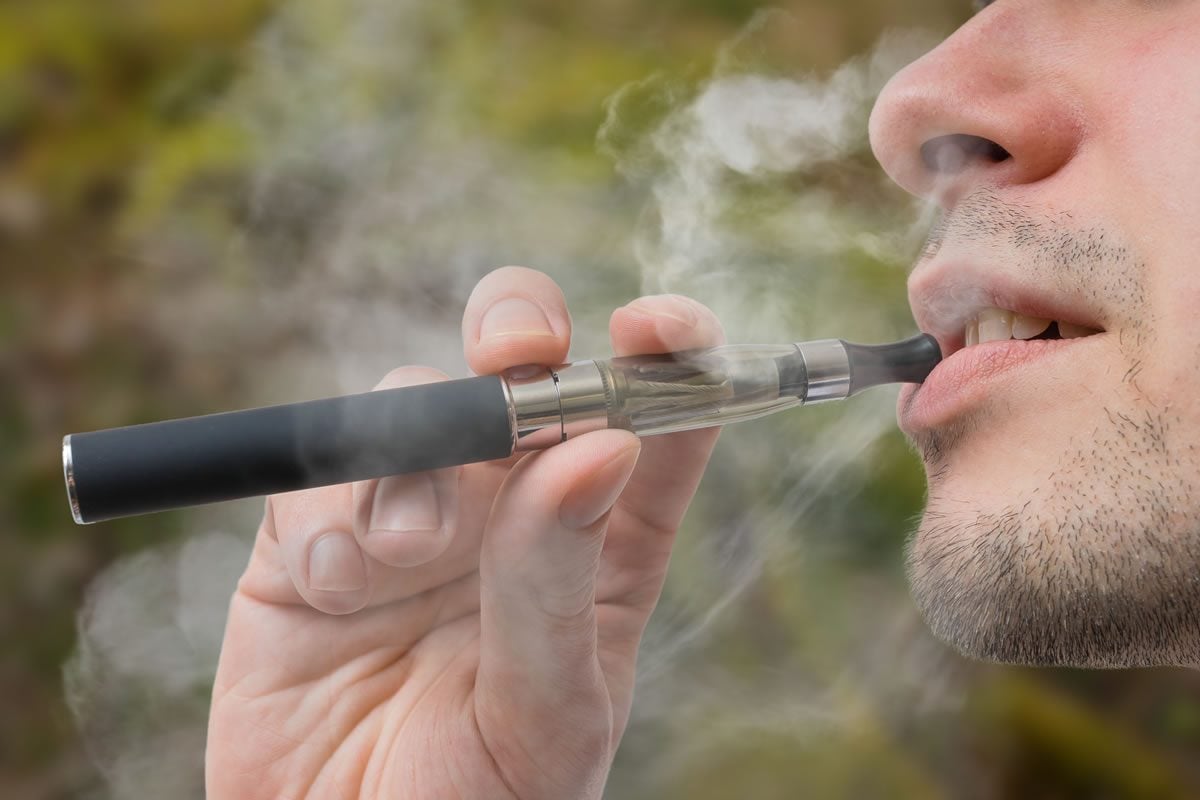By now, you’re likely aware of the negative impact smoking has on your health. However, you might not realize the serious effects smoking has on your overall dental care. Since your mouth is the starting point for all cigarette damage, you’ll deal with some significant oral health issues when you smoke. Even vaping, which is the latest trend pushed as a healthier alternative to smoking, has an impact on your health. Discover how smoking and vaping affect your dental care.
The Effects of Vaping on Oral Health
Vaping, which is when you inhale the vapours produced by e-cigarettes, has been pushed as a healthy alternative to traditional cigarette smoking. While research is still ongoing, what scientists have discovered so far isn’t promising. While e-cigarettes don’t result in bad breath, tooth discolouration, and plaque build up like traditional cigarettes, you still inhale nicotine if you choose a variety that has a nicotine cartridge. Nicotine reduces blood flow, which impacts your mouth’s ability to fight off bacteria. In turn, this can lead to a serious gum infection called periodontal disease.
Additionally, e-cigarette vapours can release inflammatory proteins in the gum tissue that can lead to critical oral diseases. Some e-cigarettes use flavouring that can also lead to cellular damage in your mouth. Lastly, research done at the University of North Carolina School of Medicine shows that e-cigarettes lead to the same, and sometimes even broader, suppression of key immune genes in your respiratory system and nasal passages as traditional cigarette smoking. This means e-cigarettes could be just as harmful as regular cigarettes to your respiratory system.
Smoking’s Impact on Your Oral Health
Since the nicotine, tar, and other harmful chemicals found in cigarettes immediately hit your teeth and mouth as soon as you start smoking, this is one part of your body that receives some of the worst side effects. These chemicals can lead to yellow stains on your teeth that are difficult to remove. They also weaken the protective enamel on your teeth, which can leave your teeth to more susceptible to bacteria that eat away at your teeth and cause tooth rot. Weakened enamel also leads to sensitive teeth.
Additionally, this build up of bacteria can lead to gum disease, which causes your gums to recede and compromises the stability of your teeth. Finally, perhaps the most major impact smoking has on your oral health is oral cancer. Tobacco smoke has over 7,000 chemicals, and over 70 of those chemicals are known to cause cancer.
Smoking and Surgeries
However, it’s not just oral health concerns you have to consider when smoking. Smokers have an increase in severe cardiovascular complications compared to nonsmokers. In fact, one study showed that smokers were 57 per cent more likely to suffer from cardiac arrest, 73 per cent more likely to have a stroke, and 80 per cent more likely to have a heart attack. This is because smoking increases inflammation, which increases your chances of these complications.
Smoking’s Impact on Wound Healing
In addition to a higher risk of complications during surgery, research also shows a direct connection between smoking and delayed wound healing after surgery. If you’re a smoker and you need surgery on your mouth (or any part of your body), it’s important to understand how smoking impacts your healing. Smoking reduces the amount of oxygen in your body. Without this necessary oxygen, surgical wounds take longer to close, which increases the risk of infection. It also increases your chances of scarring. Additionally, orthopaedic surgeries, which are those on your bones or joints, also take longer to heal.
While it’s hard to do, if you can quit smoking before your surgery, your body can heal faster and better. Within just a few days after quitting, your blood flow improves and your body starts to get more oxygen. Within four weeks of quitting, inflammatory cell response is reduced.
Treatment Options for Smokers
You’ll find a variety of mouthwashes and toothpastes marketed to smokers with claims that they can help repair damage caused by smoking. This includes toothpastes made to remove yellow nicotine stains and products used to mask cigarette odour in your mouth. However, no product on the market is as effective at treating oral problems brought on by smoking as actually quitting smoking. Additionally, many of these products use abrasive and harsh chemicals to attack bacteria that thrive in a smoker’s mouth. Yet these products can do nothing to restore enamel, prevent gum and tooth rot, or stop any type of oral cancer.
If you’re a smoker, it’s important you regularly visit your dentist to monitor your oral health, and you can use our Find Your Dentist tool to find one near you. If you’re ready to quit smoking, talk to your healthcare professional about the variety of products available to help you meet your goal.






